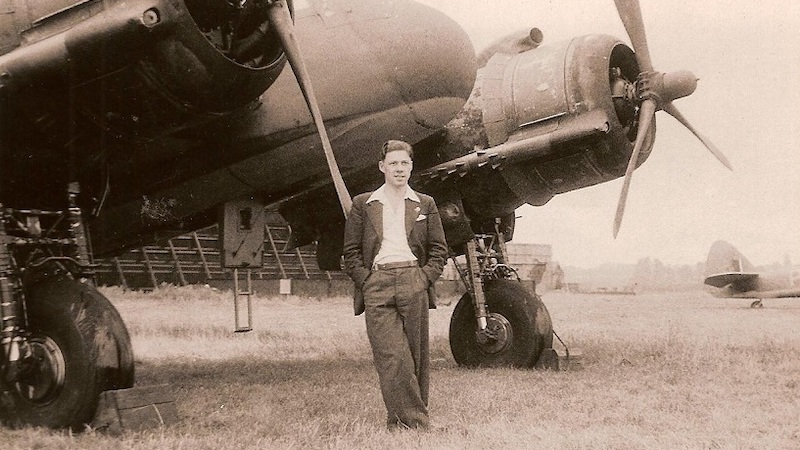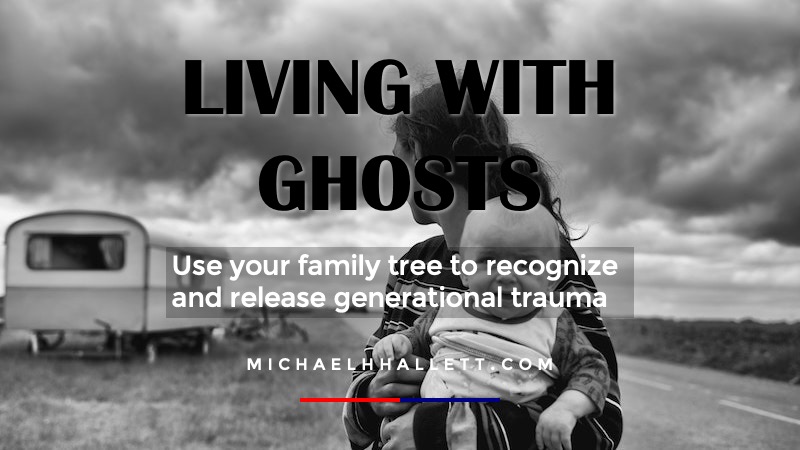Not measuring up
- 29 May 2021
- Posted by: Michael H Hallett
- Category: Generational trauma ,

I grew up in the shadow of World War 2, in the Channel Islands—the only part of the British Empire occupied by the Nazis. My mother’s family buried their valuables in a potato pot and evacuated to the mainland. Six years later they returned to find the potato pot undisturbed. In my own life, something else has lain undisturbed for years—a sense of not measuring up. Sound familiar? Let’s get digging.
In Jersey, signs of the war were everywhere. Concrete ramparts lined the beaches. More concrete was poured into the Channel Islands—much of it by forced labour—than the entire northern coast of France. The island was littered with abandoned equipment. Visiting Jersey a decade ago, a farmer opened his barn to show me a German army half-track with a 37mm anti-aircraft cannon on the back. Boys dug in the sand dunes for the spent shells that fell from aircraft fighting overhead as the Allied offensive ramped up.
Measuring up
My mother, grandfather and step-grandmother evacuated from Jersey in the summer of 1940. My mother told me that they sent a barge to evacuate the children from the island. By the time my grandfather arrived at the wharf in St. Helier with my mother, then 17, the barge was full. It wasn’t certain more barges would arrive. My grandfather calmly waited till the barge was pulling away. He picked up my mother and threw her across the widening gap onto the barge. There was room.
That was my grandfather, Harold Blackburn, in a nutshell. He was a pilot before World War 1. He volunteered at the outbreak of war by the simple expedient of flying his plane into the recruitment centre hastily set up in Roundhay Park, Leeds. No one does that so much, these days. He returned from the war as a Wing Commander with two bravery medals and four mentions in despatches.
My grandfather measured up.
“Oddly without narrative”
Yet none of this was part of the fabric of my family, the narrative that’s interwoven over years from anecdotes, snippets of conversation, old photographs, the way people responded—or didn’t—to comments, situations, people and places.
In her magnificent memoir of family dysfunction, The Architect of Desire, Suzannah Lessard refers to being “enveloped in an avoided history”. I too was enveloped in an avoided history. The problem is that, as a child, you can’t recognise it. Like Lessard’s, my family was “oddly without narrative.”
The stories, the photographs, the pride—they just weren’t there. The air race trophy he won in 1913? Nowhere to be seen. The bravery medals? Ditto. His mentioned in despatches certificates signed by Winston Churchill, then Secretary of State for War? Missing in action.
Deep, dark secrets
My father’s side of the family was equally devoid of narrative and enveloped in avoidance.
Yet here also was a tale of aviation derring-do. In 1938 my father joined the Bristol Engine Company as an engineering apprentice. Sometime around the outbreak of war the following year he became a flight test engineer, flying in the back of various Bristol-powered aircraft.
He was involved in the development of the highly successful Bristol Beaufighter. That’s him standing between the undercarriage legs of one of the prototypes. You can just make out the large yellow ‘P’ in a circle on the fuselage of the Beaufighter in the background, denoting its prototype status.
There was no computer simulation of an aircraft’s limits back then. They flew them till they broke. I once read that the casualty rate among flight test aircrew in World War 2 was 45%—far higher than RAF Bomber Command or the Nazi submarine crews.
My father measured up.
Yet, like my grandfather, his threads were missing from the family tapestry. As Suzannah Lessard beautifully puts it, we were “lost in the fanfare of minor myths” while deep, dark secrets drummed out the hypnotic, trance-like rhythms of our collective existence. There was “something about our family that we needed to know.” What was it?
Step
I mentioned that “My mother, grandfather and step-grandmother evacuated from Jersey”. The clue’s in the word ‘step’. I had a step-grandmother on my father’s side, too. When investigating generational trauma, the word ‘step’ is a red flag for buried pain and dysfunctional patterns.
Don’t get me wrong. I love both my step-grandmothers. But they only appear in this narrative because something went wrong—twice. Out of two. That’s a 100% failure rate for the statisticians among you.
As I relate in Living with ghosts – confronting generational trauma, my father’s mother died from tuberculosis when he was 4. Let’s check the damage. Abandonment: tick. Arrested development of the mother-child circuit: tick.
My father’s father remarried, but it didn’t work out. One day he walked out of their house on Gloucester Road, Bristol, and never came back. Abandonment: tick. Arrested development of the father-child circuit: tick. Shame: tick.
This is how ‘not measuring up’ accumulates, like sediment in a family’s collective experience that passes from generation to generation.
This is how ‘not measuring up’ accumulates, like sediment in a family’s collective experience that passes from generation to generation when the person who suffers the trauma isn’t able to fully handle or heal the damaging event. Lessard calls this a “darkness right there in the light.”
Hardscrabble bases
Perhaps the worst of this darkness came from my mother’s mother. Half my grandfather’s age, she couldn’t endure life in the hardscrabble Royal Air Force bases of the 1930s without basic amenities. She had an affair and the marriage disintegrated.
My grandfather went to court and won custody of my mother. In the 1930s, this was unusual. My grandfather measured up.
Yet nobody counted the cost for my mother. Abandonment: tick. Arrested development of the mother-child circuit: tick. Sexual shame: tick. The latter has a humiliating edge to it that makes it among the most toxic of human emotions.
My parents battled manfully—I can think of no other word—against this barrage of failed emotional development, of disconnection, of absent nurturing. They existed in what must have felt like a bewildering no man’s land between their multiple traumas and their powerlessness to effect meaningful change.
By means of epigenetic inheritance, all unresolved traumas are handed down. As Peter McBride noted at the 2021 Intergenerational Trauma Conference, the recipient “holds on to the experience as a living experience.” They feel a pain with no obvious source in their own life. It affects people according to their level of sensitivity.
Not measuring up
Suzannah Lessard writes, “none of my life was intelligible to me.” Despite the presence of my parents, I recall as a child having a distinct sense of abandonment. I didn’t realise that I could feel abandoned by my family at the same time as having to measure up to a set of familial ideals that were entirely invisible.
My grandfather, the war hero. My father, the courageous young flight test engineer.
The signposts that my grandfather’s and father’s examples might have provided weren’t there. Shame obliterates both the good and the bad. You can’t bury half someone’s past. The positive role-modelling disappears along with the negative.
I was left to measure myself against something that didn’t exist. A lifetime of not measuring up. Like Lessard, I “failed to develop an adult context for myself.” I inhabited a nameless territory of “borderlessness and shame”—Lessard again—with no sense of direction in life… until I started unpicking my family’s shame and trauma.
I don’t write this to feel sorry for myself or to elicit sympathy. I write it because the only way out is to stare into the darkness until you can see all the dysfunction. You must feel it, accept it, and release it. And then grace descends, “a revolutionary grace that disrupts the status quo”. Under the right conditions, which I’ve been blessed enough to experience, even arrested development processes from earliest childhood can restart.
Laying the past to rest begins with the willingness to stare unflinchingly at it with forgiveness and compassion for all involved. Everyone, in their own way, measured up as best they could.
Have you struggled with ‘not measuring up’ in your life? Low self-worth. Lack of self-esteem—call it what you will. Generational trauma provides a means of understanding how past and current lives intertwine to create our lived experience. That experience can be changed. It’s a matter of digging up the family past, like the potato pot my family buried in their back garden in 1940.
And yes, the potato pot is still in the family. There’s always a thread that holds everything together.

